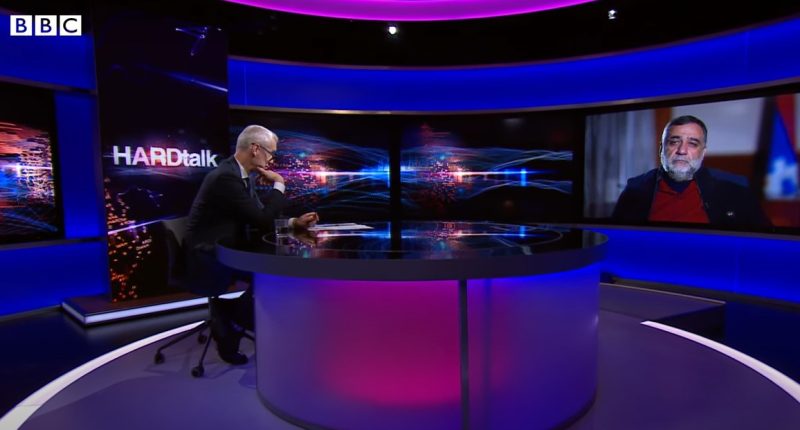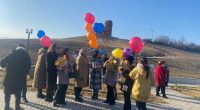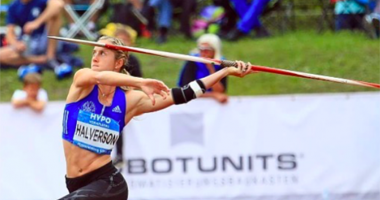The Lemkin Institute for Genocide Prevention is shocked and horrified that BBC HARDtalk Anchor Stephen Sackur offered genocide as one of two “realistic options” facing Armenians in Artsakh during an interview with Artsakh State Minister Ruben Vardanyan that aired on 23 January 2023.
Referring to the blockade of Artsakh by the dictatorial regime of Azerbaijani President Ilham Aliyev, Sackur asked Vardanyan: “You now control a tiny enclave which is suffering from the economic blockade right now, and it seems your only realistic option is either to work out a political deal with Azerbaijan or for the people, the Armenian community in Nagorno-Karabakh, to decide that this is no longer sustainable and leave the territory. So, which is it to be – a political deal or leave?”
The @LemkinInstitute is horrified that @BBCHARDtalk's @stephensackur offered #genocide as 1 of 2 “realistic options” facing #Artsakh's Armenians. We reiterate that forcing people to leave their land on threat of death is a form of genocide.
Read more here: https://t.co/ilajqIsEoV pic.twitter.com/BdgUsawI4C— Lemkin Institute for Genocide Prevention (@LemkinInstitute) January 26, 2023
The Lemkin Institute has pointed out in numerous Red Flag Alerts and Statements, forcing people to leave their land on threat of death is a form of genocide.
The Lemkin Institute said in a statement it is surprised to have to point out that genocide should never be offered to threatened peoples as a possible “realistic option” going forward.
“People threatened with genocide face choiceless choices. If Armenians are forced to flee in the face of Azerbaijani threats, that is not a “realistic option,” that is genocide. Sackur’s framing of the question places him in the position of the perpetrator, who in this case is Ilham Aliyev. By coopting Artsakhtsis (people of Artsakh) into a fantasy scenario where political negotiations with the current anti-Armenian, genocidal Azerbaijani regime are possible, Sackur engages in not-so-subtle genocide denial and even blames the victim: Artsakh is under blockade not because of the genocidal designs of Azerbaijan, but because of some inexplicable stubbornness on the part of Armenians in Artsakh or their leaders – or both, as he seems to believe,” the Institute said in a statement.
“By deploying a tactic called DARVO (Deny, Attack, Reverse Victim and Offender), Sakur is mirroring a common strategy of genocidaires. Not once does Sackur note that Azerbaijan’s blockade of Artsakh is a violation of the Ceasefire Agreement that ended the 2020 war, nor does he note that siege tactics against civilians constitute a violation of international law. In fact, he appears to excuse the blockade by referring to a “misunderstanding” between Azerbaijan and Armenia on the terms of the 2020 agreement after Vardanyan rightly points out that the blockade is a clear violation of the aforementioned ceasefire,” it added.
According to the statement, one of the most telling moments in the interview is when Sackur interrupts Vardanyan to “clarify” the language that should be used to refer to Artsakh: “You just referred to your territory as Artsakh, I should make it plain that while you, in your territory, refer to it as Artsakh, the Azerbaijani government, of course, calls it Nagorno-Karabakh, as indeed does the international community, so I just want to be clear about that.”
“The Lemkin Institute is appalled at Sackur’s insistence on the usage of the name Nagorno-Karabakh. Sackur’s “clarification” suggests the illegitimacy of the name Artsakh, which is in fact the historical Armenian name for the region. His insistence also ignores the political undertones of the term Nagorno-Karabakh, or simply Karabakh, a name that is often utilized during torture sessions, in which Azeri soldiers will force, under threat of physical harm, Armenian POWs to repeat terms such as “Karabagh is Azerbaijan.” These sessions have been documented by Azeri soldiers themselves and disseminated through social media. Sackur’s comment, which he frames as a revealed and incontestable truth, suggests a total ignorance of the history of the Artsakh conflict, and ignores the fact that Artsakh was given to Azerbaijan under the colonial rule of the Soviet Union, without the consent or input of the majority Armenian population residing within,” the Lemkin Institute said.
Although Sackur constantly says “your territory,” he seems to ignore the right of peoples to self-determination. As we have stated in several documents, the right to self-determination is one of the most fundamental ones within the international legal system according to the provisions of the United Nations Charter and several human rights instruments. This right is as fundamental as territorial integrity, equal sovereignty, and the general prohibition of the use of force. Armenians of Artsakh have continuously and consistently expressed their will for independence since 1991, when they voted in a referendum which resulted in an overwhelming 99.89 percent majority in favor of autonomy. Moreover, they have built democratic institutions and constantly requested to be recognized globally as an independent Republic. So, by referring to it as Artsakh, the State Minister Ruben Vardanyan not only honors the ancient history of the region, but also exercises Artsakh’s right to self-determination as an official representative of the country.
“The entire interview in fact is characterized by assumptions and frameworks that appear to be sourced from Baku. At times, Sackur seems to use social media as the sole source for enormous truth claims, such as that Artsakhsis believe that Vardanyan’s “time as … state minister has been a disaster.” At one point Sackur names “political scientist” Elkhan Sahinoglu, the head of the Atlas Research Center in Baku, as a source, and quotes him as saying that “Ruben Vardanyan is Moscow’s man in Karabakh.” Sackur seems completely unaware that all research institutions in Azerbaijan, like all media, are under the total control of President Aliyev’s regime. If Sackur is going to mention Azerbaijani propaganda as a source, he has an obligation to let listeners know that there is no freedom of inquiry, research, or speech in Azerbaijan,” it added.
The Institute calls on the British news media to examine possible anti-Armenian bias in its reporting. “We also call on the BBC and other global media outlets to ensure the accuracy of their reporting on the South Caucasus. We further suggest that more media companies focus on educating editors and journalists on laws and approaches related to mass atrocity and its prevention. Finally, ит аскс that journalists do not propose genocidal outcomes as “realistic options” faced by threatened communities.”











2 comments
The guy from the BBC should be sacked for his pathetic comments. He obviously has no clue about history and or the historical facts associated with Artsakh. Shame on the BBC and the provider of the interview and the pathetic questioning. Horrible, the guy should be sacked “PERIOD”. BBC should also apologies for this idiotic interview.
HardTALK is specifically designed to dress down anyone the British Betroleum Corporation (BBC) wants to harm. Instead of consulting with Diasporan publicists who know this program, Vardanyan plowed ahead, disregarding what happened to Pashinyan on the same show, presumably assuming that Sakur would not treat him the same way. Pari luys.